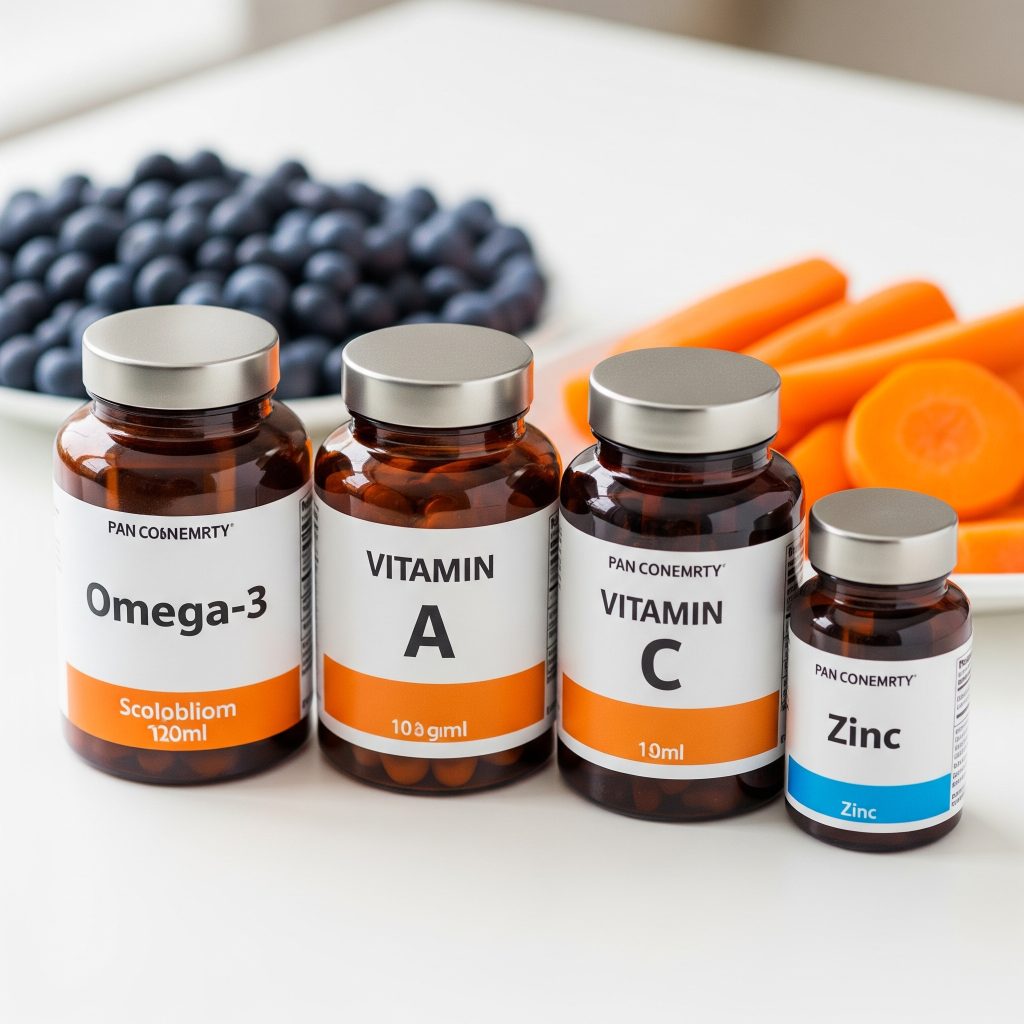
Why Eye Friendly Nutrients Matter
From combating oxidative stress to supporting the delicate tissues in your retina, specific vitamins and minerals play vital roles in maintaining healthy vision. Nutrients like vitamins A, C, and E are powerful antioxidants that help shield your eyes from free radical damage. They are natural defenders against aging processes that contribute to conditions such as macular degeneration and cataracts. For most people, a balanced diet rich in fruits, vegetables, nuts, and leafy greens provides a solid foundation for eye health.
The AREDS and AREDS2 Formulas
For individuals with intermediate age related macular degeneration, clinical evidence supports the use of specialized antioxidant supplement blends. The landmark AREDS study demonstrated that high dose combinations of vitamin C, vitamin E, beta carotene, zinc, and copper reduced progression to advanced macular degeneration by about 25 percent. The follow up AREDS2 trial refined the formula by replacing beta carotene with lutein and zeaxanthin, offering safer and equally effective protection, especially beneficial for former smokers.
Spotlight on Lutein, Zeaxanthin and Meso Zeaxanthin
These carotenoids, naturally concentrated in the macula, help filter harmful blue light and protect retinal cells. In AREDS2, participants with low dietary intake who took lutein and zeaxanthin experienced about a 25 percent lower risk of advancing to late macular degeneration. Emerging research also highlights the promise of meso zeaxanthin, the third major macular pigment. When included in combination with lutein and zeaxanthin, it may enhance antioxidant effects and visual performance compared to formulations lacking it.
The Role of Omega 3 Fatty Acids and Emerging Nutrients
Omega 3 fatty acids, especially DHA and EPA, are essential for retinal structure and may reduce dry eye symptoms. However, large clinical trials have not confirmed a direct benefit for slowing macular degeneration progression when taking supplements. Other nutrients, like vitamin B1, show early promise for reducing inflammation and supporting tear film health, but more research is needed before strong recommendations can be made.
Balance: Diet First, Supplements Second
Experts consistently stress that whole foods should be your primary nutrient source. Colorful vegetables, leafy greens, nuts, seeds, citrus, and oily fish supply a spectrum of eye supporting compounds including beta carotene, lutein, zeaxanthin, vitamin C, vitamin E, zinc, and omega 3 fatty acids. Supplements should be considered selectively, particularly for those at risk of macular degeneration progression or those who have dietary gaps. Over supplementing, especially at high doses, can be harmful. For example, beta carotene increases lung cancer risk in smokers, and excessive zinc may interfere with copper absorption.
Final Thoughts and Professional Guidance
While nutrients like vitamins C, E, lutein, zeaxanthin, zinc, and copper have proven benefits for slowing macular degeneration progression in specific cases, there is no guarantee that supplements prevent the onset of eye disease in healthy individuals. Always consult your eye care provider before starting any supplement regimen. They can assess your personal eye health, potential benefits, and any risks based on your health profile and medications.